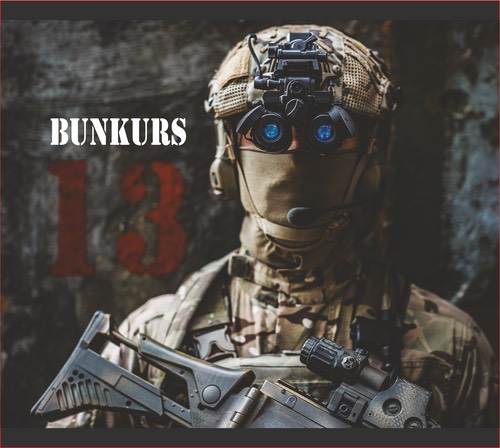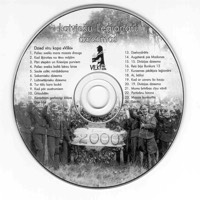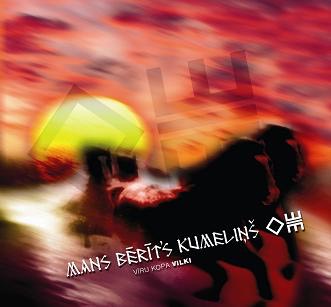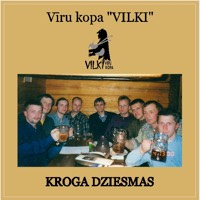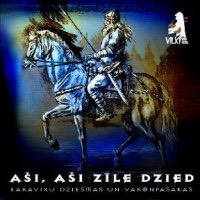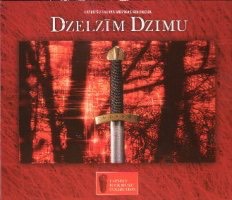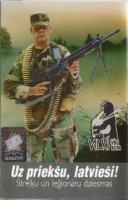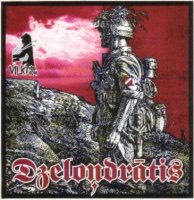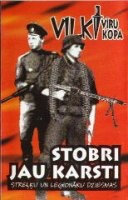In 1980, the teacher Māris Ošs began a folklore ensemble in Engure, Latvia, named after Jukums Vācietis, a commander of Latvian Red Riflemen forces during World War I.
Such an action, however, did not sit well with the ideology of the occupying Soviet regime of that time, and therefore the KGB (Cheka) of the Latvian SSR fabricated a criminal case against Ošs in 1982 and arrested him. The “Engure Folklore Ensemble Named in Honour of Jukums Vācietis” was subsequently reorganized and a part of its members continued their activities and accepted new members to the group under the leadership of Bērtulis Pizičs, who was then director of the Daile Theatre in Riga.
But the KGB pressured the folklore group once again. And again a part of the members reorganized, accepted new members, and formed the group “Liepavots” in 1987. The goal of this group was to continue popularizing the cultural heritage of Latvian soldiers.
“Vilki”
As the group turned its attention to learning the songs and way of life of ancient soldiers, it decided to change its name and has been known as the “Vilki” men's ensemble since November 5, 1992.
The core of the “Vilki” repertoire consists of soldiers' songs from the most ancient times to the present day. We search for songs in published Latvian folk music materials but also from our own recorded interviews with people. Thus, many of our songs of the Riflemen in World War I, soldiers in the Latvian War of Independence, the Latvian Legion in World War II, and the national partisans have been learned directly from the former soldiers themselves.
Currently “Vilki” consists of six men, all of whom have an interest in the soldier's way of life as well as Latvian traditions and folklore. Each of us also practices one of many ancient arts, such woodworking, leather working, the making of musical instruments, and silver smithing. Most of our costumes – shirts, cloaks, footwear, jewelry and ornaments – are also handmade by ourselves based on fragments of clothing and other ethnographic material from the 9th to 13th centuries found in archaeological excavations throughout Latvia.
But a soldier does not stand apart from the rhythms of everyday life, and therefore “Vilki's” repertoire includes songs reflecting all stages in a man's life – from the cradle to the grave – family celebrations, seasonal festivals, and so on. We often sing these songs at weddings, name-giving ceremonies, and funerals in which we are asked to participate as well as at seasonal festivals, celebrations, and special events where we teach traditions to others.
We consider the most important aspect of our activities to be the popularization and transmitting of this rich cultural heritage to the next generations, especially the very colourful heritage of soldiers' songs, which are unfortunately often silenced. To this end, we often perform in schools and for army troops.
In schools we teach children about our history, the ancient soldier's clothing and armament, musical instruments, Latvian freedom fighters of the 20th century, patriotism, and selflessness in the fight for our country's freedom. These are not dry lectures, but instead a lively illustration of the soldier's life through song, ritual, and true stories from the battlefield.
We also demonstrate and teach about the richness and diversity of Latvian folklore, music, songs, dances, games, and rituals at festivals and concerts abroad.
